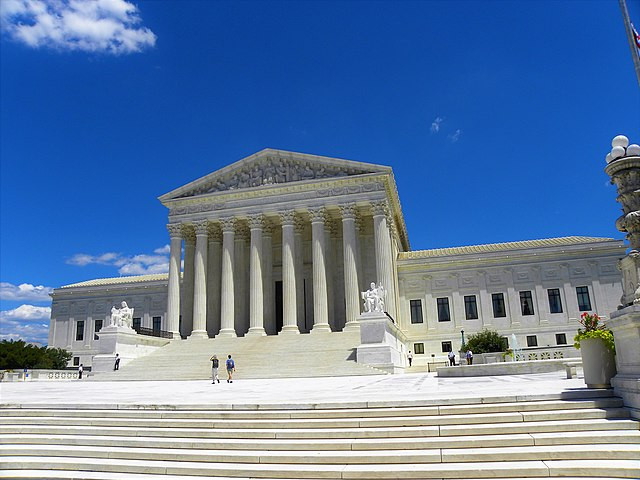The Supreme Court recently dealt a blow to the Biden administration's efforts to expand protections under Title IX, a federal law that prohibits sex-based discrimination in education. The Court's decision, delivered in a narrow 5-4 vote, denied an emergency request from the Department of Justice to reinstate parts of a new rule designed to extend Title IX protections to include sexual orientation and gender identity. This ruling halts the implementation of the rule in several Republican-led states, where legal challenges are still unfolding.
The Biden administration had finalized this new Title IX rule in April, marking a return to the protections against sexual orientation and gender identity discrimination that were initially put in place during the Obama era but rolled back under the Trump administration. The rule was set to take effect on August 1 and would have represented a major step forward for LGBTQ+ rights in education. However, it faced immediate opposition from Republican state attorneys general who argued that the rule overstepped its bounds, particularly concerning provisions related to transgender individuals in school sports and facilities.
"Unlike Democrats, Republicans know what a woman is, and we know Title IX was written to protect the rights of women," House Speaker Mike Johnson (R-La.) declared on social media platform X, celebrating the Court's decision. Johnson, along with other GOP lawmakers, framed the ruling as a victory for women's rights, particularly in the context of protecting women's sports from what they view as unfair competition from transgender women.
The legal battle over the Biden administration's Title IX rule reflects a broader cultural and political conflict over transgender rights in the United States. Many Republicans have turned the issue of transgender women in sports and the use of gendered spaces into a key point of contention, arguing that such policies threaten the integrity of women's sports and infringe upon the privacy of women and girls. "Today, the Supreme Court delivered a victory for women and common sense," said Rep. Andy Barr (R-Ky.), who, like many of his colleagues, has been a vocal critic of the Biden administration's stance on these issues.
The Supreme Court's decision comes after lower courts in several states, including Tennessee and Louisiana, issued injunctions blocking the Department of Education from enforcing the new Title IX rule. These courts have sided with Republican plaintiffs who argue that the rule is legally flawed and likely to cause harm. The Supreme Court's refusal to lift these injunctions means that the rule will remain on hold as the legal challenges continue to make their way through the court system.
Sen. Joni Ernst (R-Iowa) also praised the decision, calling it a "huge win" for those who oppose the Biden administration's efforts to extend Title IX protections to LGBTQ+ students. "Men shouldn't be allowed in women's sports or bathrooms," Ernst wrote, reflecting a common sentiment among Republicans who see the issue as one of preserving traditional gender norms.
On the other side of the debate, LGBTQ+ advocacy groups and many Democrats have criticized the Supreme Court's decision, arguing that it perpetuates discrimination against transgender and other LGBTQ+ individuals. The Human Rights Campaign, a leading LGBTQ+ rights organization, has condemned the ruling as a setback for civil rights, emphasizing that the arguments against the Title IX expansion are rooted in prejudice rather than fact.
Justice Sonia Sotomayor, who was among the four dissenting justices, expressed deep concern over the implications of the Court's decision. In her dissent, she wrote, "By blocking the Government from enforcing scores of regulations that respondents never challenged and that bear no apparent relationship to respondents' alleged injuries, the lower courts went beyond their authority." Sotomayor's dissent highlights the complexity of the legal issues at play and the potential consequences for LGBTQ+ students across the country.
The Supreme Court's ruling is not the final word on this issue. The legal challenges to the Title IX rule are expected to continue, and the case could eventually return to the Supreme Court for a more definitive ruling. In the meantime, the decision has energized both sides of the debate, with Republicans viewing it as a critical win in their broader cultural battle and LGBTQ+ advocates redoubling their efforts to secure protections for vulnerable communities.






